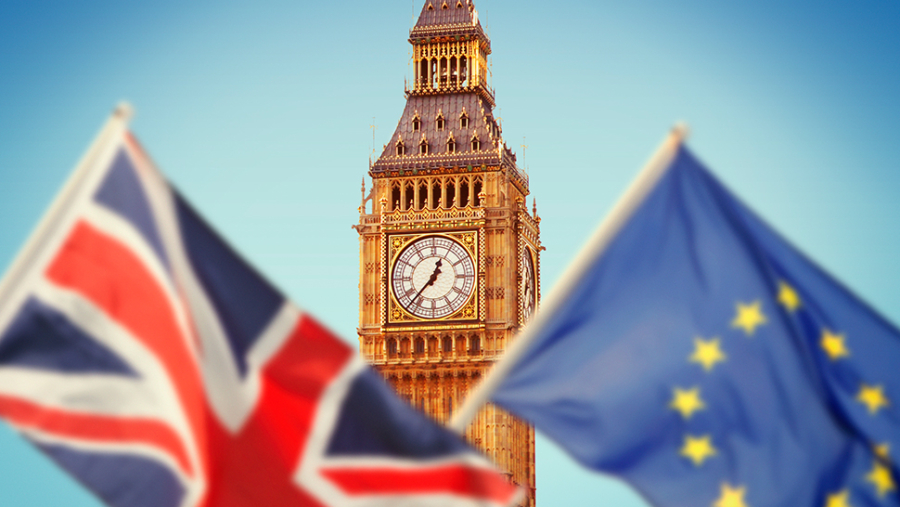

Anyone engaged in the purchase and sale of goods and services across national borders within the European Economic Area (EEA) needs to consider the impact of Brexit on their business.
From 1 January 2021, EU law providing for the exhaustion of intellectual property (IP) rights will no longer apply in the UK. Instead, the Intellectual Property (Exhaustion of Rights) (EU Exit) Regulations 2019 will come into effect.
If you are an importer of IP protected goods into the EEA, this change may have a significant impact on your business.
What does “exhaustion of rights” mean?
Once a manufacturer puts their IP protected goods on the market for sale within the EEA, they are no longer able to rely on those IP rights to stop the further distribution or resale of those goods within the EEA. The IP rights are therefore ‘exhausted’.
At the moment, the UK is still a member of the EEA. This means that businesses can buy IP protected goods in the UK and then sell them into (or back into) other EEA countries without the manufacturer being able to bring an IP infringement claim against them and vice versa.
How will this change after Exit Day?
The transition period will come to an end on 31 December 2020 (Exit Day) and, from 1 January 2021, the UK will be classed as a ‘third country’ that is no longer part of the EEA.
This means that, when IP protected goods are put onto the market in the UK, the IP rights in those goods will not be ‘exhausted’ in the rest of the EEA. Therefore, if a reseller who has purchased the IP protected goods in the UK tries to sell those products to a buyer in the EEA without the rights holder’s permission, they could face a claim from the rights holder for infringement.
Example:
Company A is a German company which manufacturers branded toothpaste, which it then sells into France and the UK.
It sells its branded toothpaste for €5 per unit in France and £2 per unit in the UK.
Company B buys the branded toothpaste from Company A for £2 per unit in the UK and then sells it into France at €4 per unit, undercutting Company A. This erodes Company A’s profits in France.
Before 31 December 2020, Company B can resell the branded toothpaste into France without Company A’s permission, as Company A’s IP rights in the toothpaste are ‘exhausted’ once it is put onto the market in the UK.
After 31 December 2020, Company A’s rights will not be exhausted in France once the toothpaste has been sold in the UK. If Company B continued to sell the toothpaste into France without Company A’s permission, Company A could bring a claim for infringement of its intellectual property rights in France.
However, where goods are initially put on the market in the EEA, the IP rights in those goods will continue to be ‘exhausted’ in the UK. This means that if Company A in the example above were to sell its branded toothpaste into France, the purchaser in France would be entitled to resell the goods into the UK without Company A bringing an infringement claim against them.
The exception to the changes described above will be patent-protected goods. These are subject to the European Patent Convention, which sits outside EU Law and which will therefore not be affected by Brexit. The legal position on parallel trade of patent-protected goods will therefore remain the same after 31 December 2020.
How will the new rules be enforced?
Manufacturers have a variety of options to enforce the new rules. In particular, the primary enforcement mechanisms available to them are to bring an IP infringement claim seeking damages and an injunction in the relevant EEA country into which the goods are sold without their permission, subject to the laws of that country, or to submit an application to the relevant customs authorities, who have the power to seize and, in some cases, destroy such goods.
How does this affect businesses?
This change will be good news for manufacturers of IP protected goods, who are trying to stop resellers purchasing those goods cheaply in the UK and selling them into (or back into) Europe, at a rate that undercuts the manufacturer.
However, the change is bad news for resellers who are engaging in such activities, as they will be prevented from selling IP protected products into Europe without the consent of the rights holder.
What steps can be taken by those affected by the change?
There is very little that businesses can do that will enable them to continue importing IP protected goods into the EEA without the rights holder’s permission after 31 December 2020. The position will only change if a deal is reached before the end of the transition period.
Businesses who continue to engage in such activity may be able to seek the rights holder’s written permission to continue importing goods into the EEA, though this will often prove difficult to obtain.
Businesses who continue to engage in parallel trade without the rights holder’s permission should insert suitable clauses into their contracts to limit liability to their customers in the event that the customer receives an IP infringement claim from the rights holder.
We can provide further advice on whether these changes are likely to affect you, and help you to assess the impact they will have on your business. We can also provide suitable limitation of liability clauses to be included in your customer contracts, to help safeguard your business.










